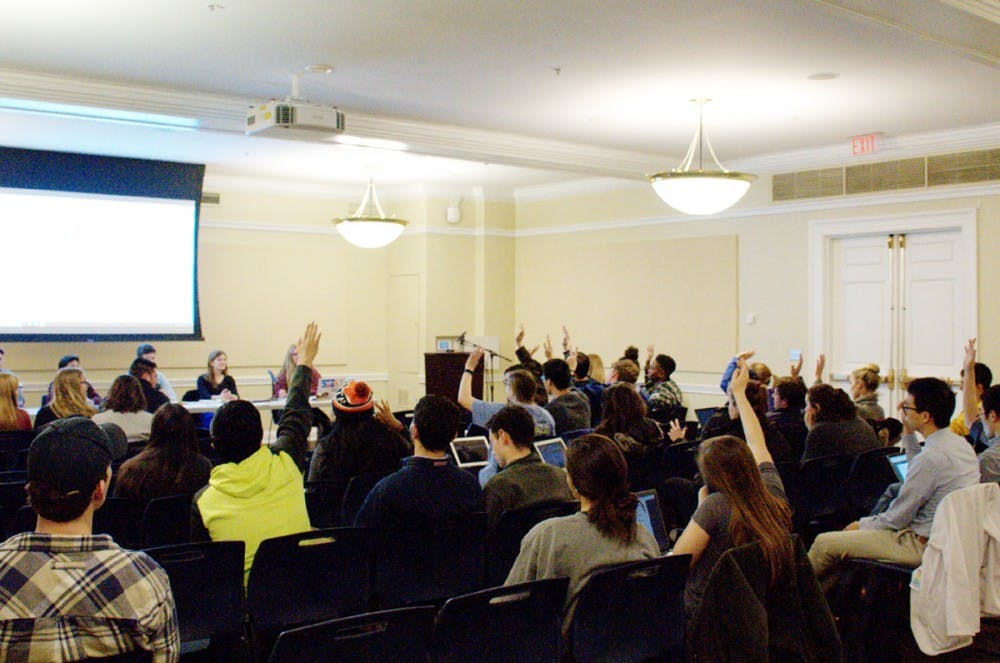Student Council prides itself on providing a direct avenue for involvement in student self-governance at the University. Through committee membership and elected office, students are given an equal opportunity to participate in the process that helps to define University life. Equality in Council elections allows different viewpoints across the University community to contribute to the policymaking process — a vital component in a system meant to represent the entirety of the student body.
Tabled on Feb. 27, the bill seeks to remove any sitting representative found guilty of an Honor Committee. Following deliberation among representatives and discussion during the Feb. 27 meeting, the bill better addresses the sensitive nature of the confidentiality of a guilty charge.
During the Feb. 21 general body meeting, representatives discussed the ambiguity present in the Council’s constitution regarding members convicted of an Honor charge. On follow-up discussion on Feb. 27, Council representatives amended the bill to reflect their commitment to preserving confidentiality. The fact that representatives have never been explicitly required to step down from their positions following a guilty verdict may reflect an intentional decision on the part of Council members to preserve individual student liberties. The amendments made to the bill show the intentional decision to hold representatives to a high standard.
The bill requires that any representative found guilty of an Honor charge will be forced to step down from their office, however this does not preclude these students from running for election again once they return to the University, in the case of an informed or conscientious retraction. The informed and conscientious retractions provide students convicted of Honor charges the opportunity to return to the University and become fully reintegrated into student life. The stigma surrounding Honor convictions would linger long after the trial itself had concluded. This bill works to fight that stigma, while also holding representatives to the same standard as other University students. Students should be required to fulfill the sanctions handed down by Honor, however upon completion of those sanctions, those students should be welcomed back into the University community and given again the equal opportunity to participate in University life. This bill provides a means for reintegration once students return to the University.
Correction: This editorial previously argued against the bill, mistakenly believing that the legislation required representatives to step down if convicted of either an Honor or UJC charge. Due to the need to protect confidentiality of student records, the bill currently does require a student convicted of UJC charges to step down. This editorial has been updated to weigh in on the text of the bill as it currently stands.







